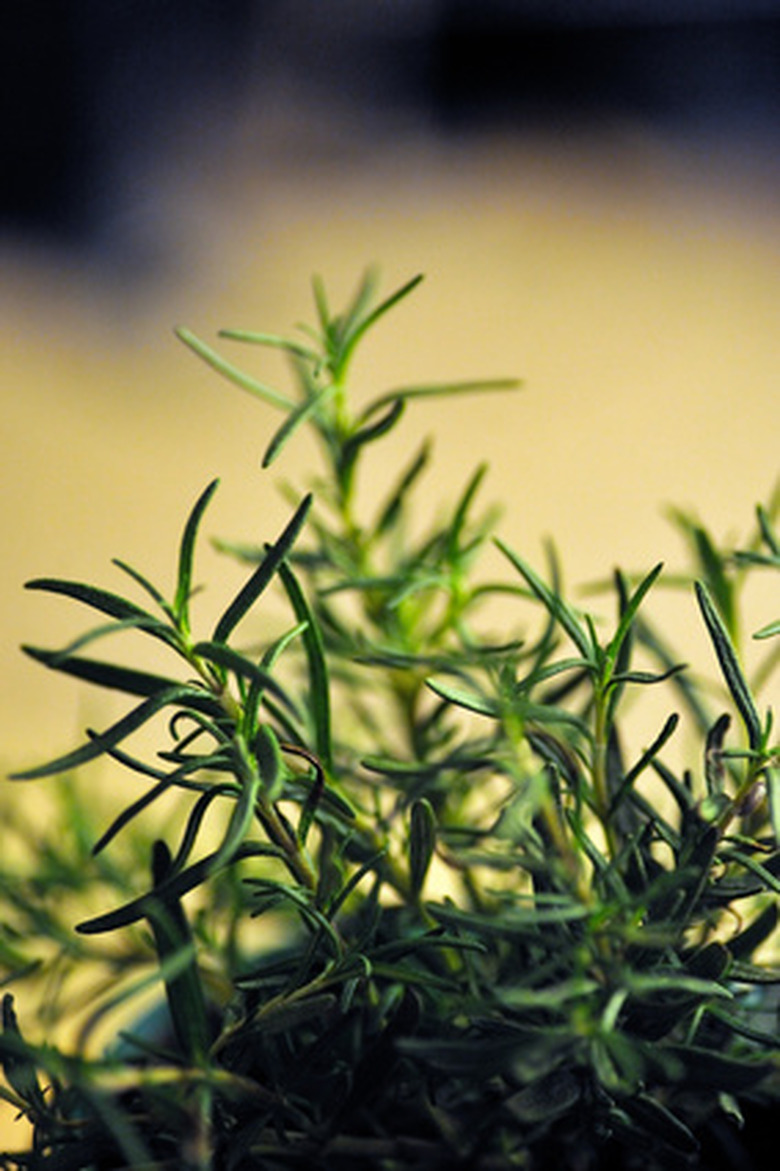Potting Soil Mix For Herbs
Herbs are easy to grow in containers. Most are small perennials or shrubs that adapt well to confined root spaces and some, but not all, are drought-tolerant Mediterranean plants that can take dry spells and windy sites. When deciding on a potting soil, group moisture- and shade-loving herbs, such as mint, together and use one mix for all. Use a separate, less moisture-retentive mix for the drought-tolerant herbs.
Herbs are easy to grow in containers. Most are small perennials or shrubs that adapt well to confined root spaces and some, but not all, are drought-tolerant Mediterranean plants that can take dry spells and windy sites. When deciding on a potting soil, group moisture- and shade-loving herbs, such as mint, together and use one mix for all. Use a separate, less moisture-retentive mix for the drought-tolerant herbs.
Materials
For the best potting soil mix, balance of moisture- and nutrient-holding organic material with inert substances to give the mix a porous, open texture. Organic material can include compost, finely ground bark, peat moss, coir (coconut fiber), bagged steer manure and rice hulls. Inorganic materials may include sand, perlite, vermiculite and rock dust.
- Herbs are easy to grow in containers.
- When deciding on a potting soil, group moisture- and shade-loving herbs, such as mint, together and use one mix for all.
Garden soil may used, but never as more than one-fourth of the mix, because it compacts easily. Do not use garden soil in a mix for starting seeds as it may contain disease organisms.
Considerations
Drainage is the most important factor in a potting mix. Roots need air as well as moisture, especially in pots. Moisture-holding capacity is also important. You don't want a mix that dries as quickly as pure sand, so organic matter such as peat and coir, fibrous materials that allow water to drain through but soak up enough to last for a day or two, is a necessary part of the mix.
Fertility is a minor concern for many herbs. Mediterranean herbs taste better when grown in somewhat lean soil. Parsley and chives do well with occasional doses of fertilizer, but it's best to add your own rather than buy a pre-fertilized mix.
- Garden soil may used, but never as more than one-fourth of the mix, because it compacts easily.
- Drainage is the most important factor in a potting mix.
Potting Mix For Moisture-Loving Herbs
Mints, chives and parsley need more moisture-holding materials in the mix, particularly in quick-drying unglazed clay pots. Mint can grow in moist, even boggy ground, so add more organic matter, or even some water-holding granules that absorb many times their weight in water. For chives, parsley and other shade-tolerant herbs, a regular bagged potting soil should be fine.
Potting Mix for Mediterranean Herbs
An ideal mix for Mediterranean herbs like rosemary, thyme and oregano is fast-draining but moisture retentive. Use fibrous organics such as coir and peat moss to improve drainage while still holding water. If you buy a potting mix, add some extra sand, perlite or fine gravel for extra drainage.
Mixing Your Own
You can save money by starting off with your own compost and garden soil, but be sure to add sand, perlite or finely ground bark to improve drainage. It's not important to follow an exact recipe, just make sure the mix will not pack into a ball, but falls apart easily in your hand. If you use peat moss, add some ground limestone to counteract its natural acidity.
- Mints, chives and parsley need more moisture-holding materials in the mix, particularly in quick-drying unglazed clay pots.
- You can save money by starting off with your own compost and garden soil, but be sure to add sand, perlite or finely ground bark to improve drainage.
